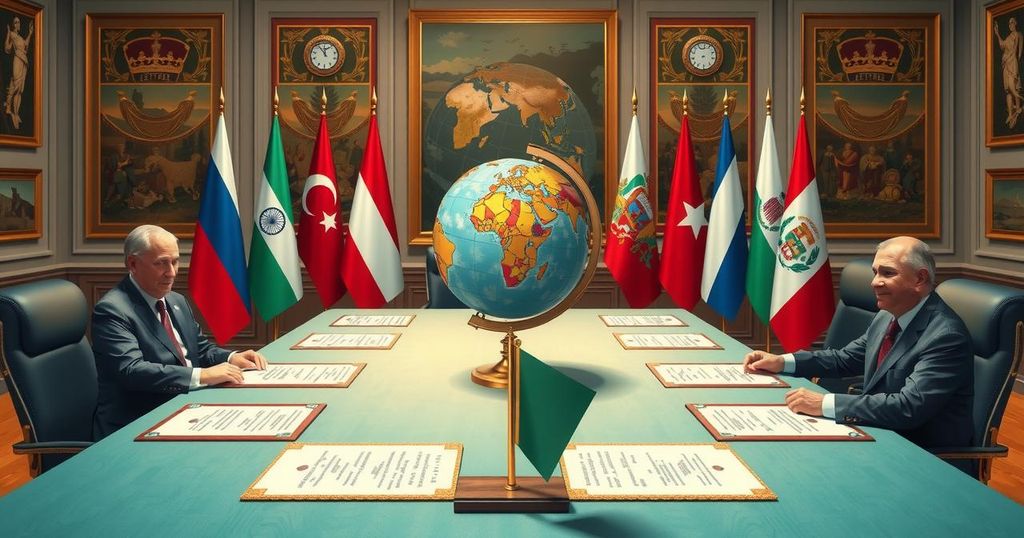Shifting U.S. Priorities: Trump, Netanyahu, and the Iran Negotiations

President Trump’s unexpected decision to negotiate with Iran without consulting Israeli Prime Minister Netanyahu has caused significant concern. This change in policy follows Netanyahu’s earlier efforts against the Iran nuclear deal and highlights a growing divide between U.S. and Israeli interests. Additionally, Trump is preparing a nuclear cooperation agreement with Saudi Arabia, further complicating Netanyahu’s political strategy.
Recently, President Donald Trump made a bold statement regarding world leaders’ eagerness to negotiate tariffs, prompting Israeli Prime Minister Benjamin Netanyahu to travel to Washington to highlight Israel’s removal of tariffs on U.S. imports. However, Netanyahu was surprised when Trump informed him that the U.S. would commence negotiations with Iran regarding a nuclear agreement, bypassing his involvement. This marks a stark contrast from Netanyahu’s expectations and previous conduct regarding U.S.-Iran negotiations.
Netanyahu has been vocal in opposing the 2015 nuclear deal between the U.S. and Iran, which he argued was unfavorable for Israel. Following intense lobbying against the agreement, he had successfully rallied significant U.S. political support against it. However, the evolving political landscape has resulted in diminished backing for Netanyahu among Democrats and a growing divide with American Jewish communities regarding his approach to U.S. foreign policy.
As discussions about the second round of nuclear talks between the U.S. and Iran loom, Trump’s unpredictability raises concerns for Netanyahu. The U.S. special envoy, Steve Witkoff, is shifting parameters for the negotiations, fluctuating between demands for total nuclear dismantlement and more flexible conditions. This unpredictability contrasts with Netanyahu’s maximalist approach, which may conflict with Trump’s objectives.
Trump’s focus appears to be on achieving a diplomatic victory to counteract his recent foreign policy challenges. He aims to make a significant deal with Iran independently, pressured by domestic politics and the necessity for a foreign policy win. Meanwhile, Netanyahu is eager to collaborate with the U.S. to address security concerns regarding Iran, yet their goals may not align.
Further complicating relations, Trump is reportedly set to finalize a nuclear cooperation agreement with Saudi Arabia that is not contingent upon normalization efforts with Israel. Previous negotiations were stalled after the Saudis placed additional demands centered around Palestinian statehood. A trip to Saudi Arabia is anticipated next month, during which Trump may unveil this deal, potentially further sidelining Netanyahu’s agenda.
The recent shift in U.S. foreign policy under Trump signifies a disconnect between the administrations regarding Iran and Saudi Arabia. Netanyahu’s expectations for U.S. support in nuclear negotiations with Iran and collaboration over Saudi relations have been challenged. The evolving dynamics may alter the established political alliances and shape the future of U.S.-Israel relations, indicating a precarious balance of power.
Original Source: www.jpost.com







